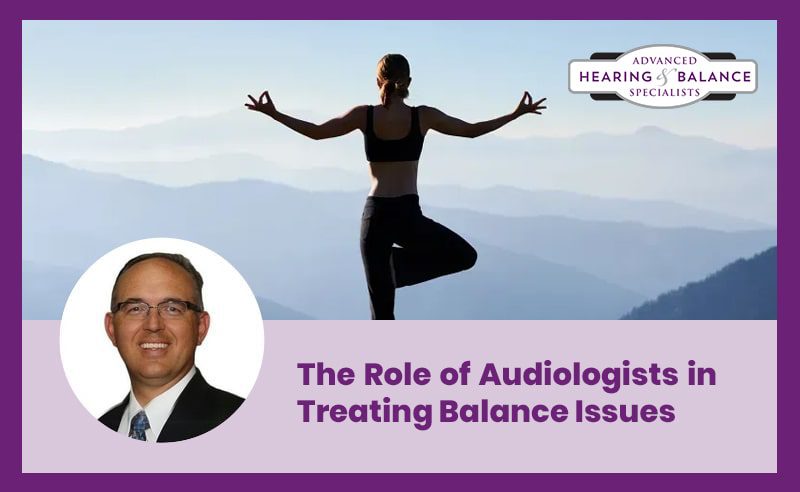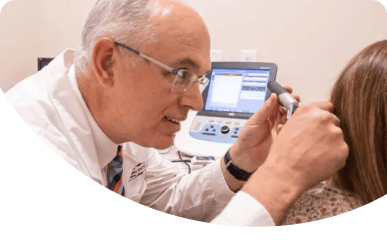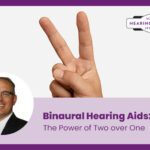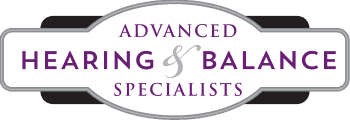Having a sense of equilibrium is vital for our overall health and well-being. However, according to the American Speech-Language-Hearing Association (ASHA), nearly 16% of U.S. adults are grappling with some sort of balance issues.
This guide will shed light on a lesser-known aspect of audiology: its significant role in diagnosing and treating balance disorders. It is important to know that these issues are not just bothersome but can also pose serious safety hazards and significantly impact your quality of life.
The Connection Between Hearing and Balance
Balance involves the intricate interplay of multiple bodily systems: the eyes for vision, the inner ear for understanding our position and movement, and sensory receptors in the skin, muscles, and joints for sensing body position. Together, they transmit information to the brain, helping us stay balanced and stable.
When any of these systems aren’t working properly, balance disorders can occur, leading to symptoms like dizziness, vertigo, and unsteadiness. These issues can disrupt daily life, raise the risk of falling, and greatly affect overall quality of life.
The inner ear, or labyrinth, is a complex structure containing the cochlea, which is vital for hearing, and the vestibular system, essential for balance. Therefore, it’s common that problems in the inner ear affect both hearing and balance.
Research shows a significant link between hearing loss and balance issues. Hearing helps us understand our environment through sound and also assists in keeping our balance. Sounds give us crucial information about our surroundings, especially when vision or proprioceptive senses are limited.
Symptoms and Causes of Balance Disorders
Balance disorders can manifest in various ways, including:
- A sensation of dizziness or vertigo (spinning)
- Feeling of falling or being off-balance
- Lightheadedness, dizziness or feeling “woozy”
- Visual blurring
- Disorientation
In some cases, people may also experience nausea, vomiting, changes in heart rate and blood pressure, fear, anxiety, or panic. These symptoms can lead to fatigue, depression, and decreased concentration, affecting an individual’s overall well-being.
Several factors can contribute to balance disorders, including infections, head injury, certain medications, and aging. Disorders of the visual or skeletal systems, like eye muscle imbalance and arthritis, can also cause balance difficulties. Furthermore, any discordance in the signals sent to the brain about the sensation of movement can lead to motion sickness.
The Role of Audiologists in Diagnosing Balance Disorders
Audiologists are healthcare professionals who specialize in diagnosing and treating hearing and balance disorders. We play a pivotal role in assessing balance issues, conducting a range of tests to pinpoint the exact cause of the problem.
Diagnostic Tests for Balance Disorders
If you’re experiencing symptoms affecting your balance, it’s important to seek medical advice. Your doctor may recommend seeing an audiologist for a thorough evaluation. We will review your medical history and conduct a physical examination to pinpoint the cause of the balance issues.
A variety of tests might be conducted, including:
Hearing Test: Assesses if ear-related problems are impacting hearing and balance.
Tympanometry: Checks for fluid behind the eardrum, commonly linked to allergies or infections.
Computerized Dynamic Posturography (CDP): Evaluates the coordination of visual, vestibular, and sensory systems in maintaining balance.
Vestibular Evoked Myogenic Potential (VEMP) Test: Investigates the functioning of specific parts of the inner ear and associated nerves, which could be contributing to balance disorders.
Oculomotor Tests: Examines the eye-ear connection, crucial for balance.
Positional Tests: Looks for dislodged “crystals” in the ear canals that could affect balance.
Air Caloric Testing: Identifies certain inner ear conditions by observing reactions to air temperature changes in the ear canal.
These tests provide a detailed understanding of the causes of balance problems, guiding us in determining the best course of action.
Treatment for Balance Disorders
The treatment for balance disorders depends on the underlying cause. Options may include:
Surgery or Medication: Some balance problems may require surgical intervention or medication.
Vestibular Rehabilitation: This individualized balance-retraining exercise program aims to decrease dizziness, improve balance, functional activities, and quality of life.
Hearing Aids: For patients with hearing loss, the use of hearing aids can significantly reduce the risk of balance issues.
See our Advanced Hearing & Balance Specialists today
Remember, balance issues should not be taken lightly. If you or your loved ones are experiencing any symptoms, it’s essential to seek medical help promptly. Don’t let balance disorders affect your quality of life.
We have expert audiologists in St. George, Cedar City, Hurricane, Beaver, Panguitch in Utah and in Overton and Mesquite in Nevada.
Reach out to an audiologist today to hear and feel your very best!







